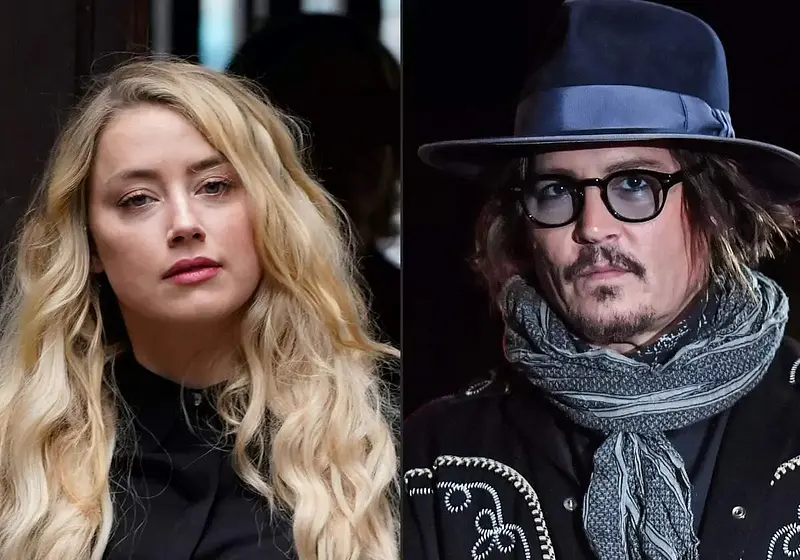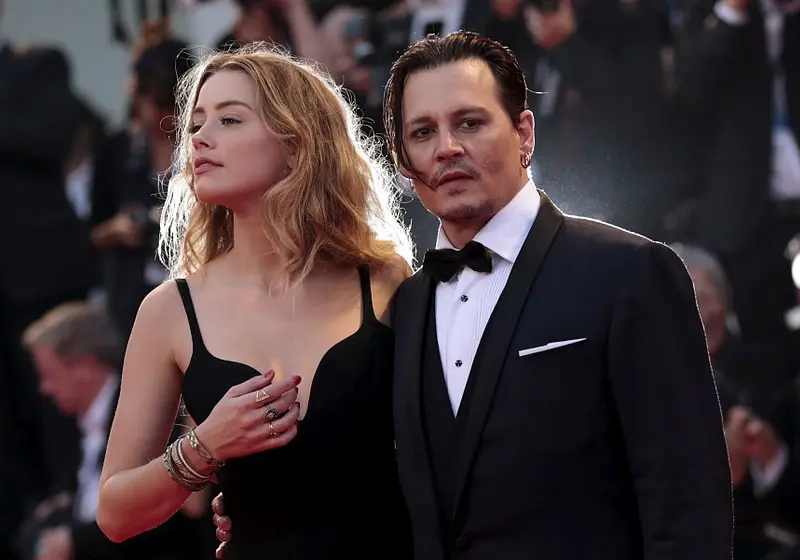The defamation case against Amber Heard filed by Johnny Depp has set back the #MeToo movement since Heard didn’t appear as a “perfect victim”. Whatever you may be feeling about this case, one thing rings true: women are faced with double standards and are often ridiculed and harassed for coming forward with allegations of assault or abuse.
This case has been unique compared to others we've seen in the past because it has changed people's perspectives of what a domestic abuse victim can look like. In this instance, a man, Johnny Depp, claimed he was the victim. Even though this case could usher in support for other men that are victims and destigmatize preconceived notions that men can't be victims of domestic abuse, it also proved that women continue to receive the majority of the backlash if they choose to speak out against an abuser.
Depp v. Heard's trial comes at a time when women's rights are on the chopping block based on the supreme courts' leaked draft detailing their decision to overturn Roe v. Wade. Now is an important time for us to realize our power as the younger generation and fight against these wrongs inflicted upon women.
In the closing statements during the trial, one of Heard’s attorneys, Benjamin Rottenborn, made a statement listing some of those double standards that women are often faced with. “If you didn’t take pictures, it didn’t happen; if you did take pictures, they’re fake,” he said. “If you didn’t tell your friends, you’re lying; and if you did tell your friends, they’re part of the hoax. If you didn’t seek medical treatment, you weren’t injured; if you did seek medical treatment, you’re crazy.”
(Photo: The Economic Times)
So, who is a perfect victim? In Heard’s case, people thought her words were too calculated, that she was snorting [censored] on the stand, and that her tears were nothing more than crocodile tears. Had she been more emotional, would that have won over the jury or would it create the opposite effect as it did in the Patricia Bowman’s rape case in 1991 when she testified against William Kennedy Smith, where she was deemed too hysterical? Maybe if she had been docile and coy, she would've been more liked by both the jury and the public or maybe people would have found her too calm, reserved, and overall found her emotionless. It leaves us asking how a woman has to act in order not to face scrutiny and be believed? What is the right balance of characteristics to create the "perfect victim"?
When Christina Blasey Ford accused Brett Kavanaugh of sexual assault and misconduct, similar words were weaponized against her. Why is she coming out with this story so late? Was she drunk?
Did she ask for it? These questions are demeaning and push the responsibility away from the abuser or rapist and onto the victim.
On closer inspection, we must realize that the "perfect victim" doesn't have to exist in order for the allegations to be considered true. Humans are complex individuals with complex histories. Each situation vastly varies and everyone reacts differently to them. No one is perfect, so why does a victim in an assault case have to be?
There are too many instances where we over-examine the women coming out with the allegations instead of zeroing in on the problem that our society continues to have, which is letting men with influence and power get away with it. And the reason our society always gives is: it’ll ruin his life.
That very argument was made in the case against Brock Turner when he raped an unconscious Chanel Miller. He was a student at Stanford University after all and it would ruin his “promising” life. What about her life?
The trauma all these victims have to deal with from their sexual abuse can last a lifetime. Why shouldn’t rapists and sexual abusers have to deal with those consequences that they themselves created and inflicted onto other individuals?
(Photo: New York Post)
The verdict of the Depp vs. Heard defamation trial will cause a cataclysmic setback for women dealing with abusers and rape, because now women will be more afraid to speak out against them. It can influence the younger generation to feel like their stories don't matter.
They may feel that they will risk the humiliation and degradation that Heard received or that if they do speak out, even without naming their abusers name, they could themselves face a defamation trial. Without the proper resources, women will be asked to bury their trauma and just move on. That is a verdict we cannot accept.










.jpg)